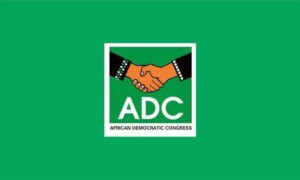ADC Alleges Nasir El‑Rufai Plot to “Hijack” Kaduna Party Chapter
Kaduna, August 4, 2025— In a forceful press briefing held earlier today, the Kaduna State chapter of the African Democratic Congress (ADC) issued a strong warning to former Governor Nasir El‑Rufai, accusing him of orchestrating a covert move to infiltrate and destabilize the party within the state.

Historical and Political Context
Founded in 2005, the ADC has positioned itself as a grassroots alternative to major parties like the APC and PDP, with intentionally open membership and a stated goal of promoting inclusive governance. The party recently became the focal point of national realignment after prominent opposition figures, including Atiku Abubakar and Peter Obi, moved into its fold to consolidate opposition ahead of the 2027 elections.

Nasir El‑Rufai served as Kaduna State Governor from 2015 to 2023 under the APC umbrella, leaving behind a mixed legacy that includes controversial land reforms, civil service restructuring, and heightened tension with Southern Kaduna communities. After defecting from the APC to the SDP in March 2025 and later aligning himself with ADC structures, El‑Rufai’s political moves are now under scrutiny.
ADC Leadership Speaks
At the press conference in Kaduna, ADC State Chairman Alhaji Ahmed Tijjani Mustapha accused El‑Rufai of coordinating “clandestine activities”—via loyalists in the SDP—to undermine the Kaduna ADC chapter and assert control.

> “We are open to all Nigerians who believe in our values. But we will not allow our party to be turned into a political vehicle for anyone’s personal project. El‑Rufai’s subversive moves are unacceptable and will be strongly resisted.”
The party stressed that it would not become “a willing tool in the hands of any individual” and reaffirmed its commitment to internal democracy and broad participation.
Stakes and Internal Dynamics
ADC officials argue that allowing El‑Rufai or similar figures to shape the Kaduna chapter could repeat what they described as “old party” tactics—those that prioritize elite power over grassroots representation. ADC warned that El‑Rufai’s alignment with rival interests poses a real threat to the party’s unity and democratic processes.

At the national level, ADC spokesman Felix Morka has echoed these concerns, accusing El‑Rufai and Atiku of attempting to impose Atiku as the party’s 2027 presidential standard-bearer in a manner that disregards zoning and rotational principles. Morka charged that their maneuvers risk replicating the internal contradictions that disoriented the PDP in 2023, calling the alliance a “clear and present threat to unity, peace, and progress” in Nigeria.
Analysis: Possible Ramifications
- For El‑Rufai: This confrontation may signal internal resistance to his ambitions within ADC’s grassroots structure, possibly complicating his broader political trajectory ahead of 2027.
- For ADC: The Kaduna warning may serve as a litmus test of the party’s resolve to remain independent and democratic amid pressures from heavyweight political actors.
- For Nigeria’s Opposition Landscape: The clash highlights tension around power-sharing conventions, particularly the southern presidency rotation principle. It reflects deeper fault lines in how opposition figures seek to use newer platforms like ADC for political revival.
Why This Matters
Kaduna is a politically strategic state with a deeply divided demographic and a history of volatile governance under El‑Rufai, especially in Southern Kaduna, where longstanding crises remain unresolved. The ADC’s resistance to his alleged encroachment hints at broader ideological and regional tensions that could influence national opposition dynamics ahead of critical elections.

Bottom Line:
The ADC’s Kaduna chapter is making it unmistakably clear: the party will resist any perceived attempt at usurpation. Whether El‑Rufai backs off or doubles down could significantly reshape internal power balances—not just within Kaduna, but potentially across Nigeria’s evolving opposition terrain.
Headlinenews.news Special report




